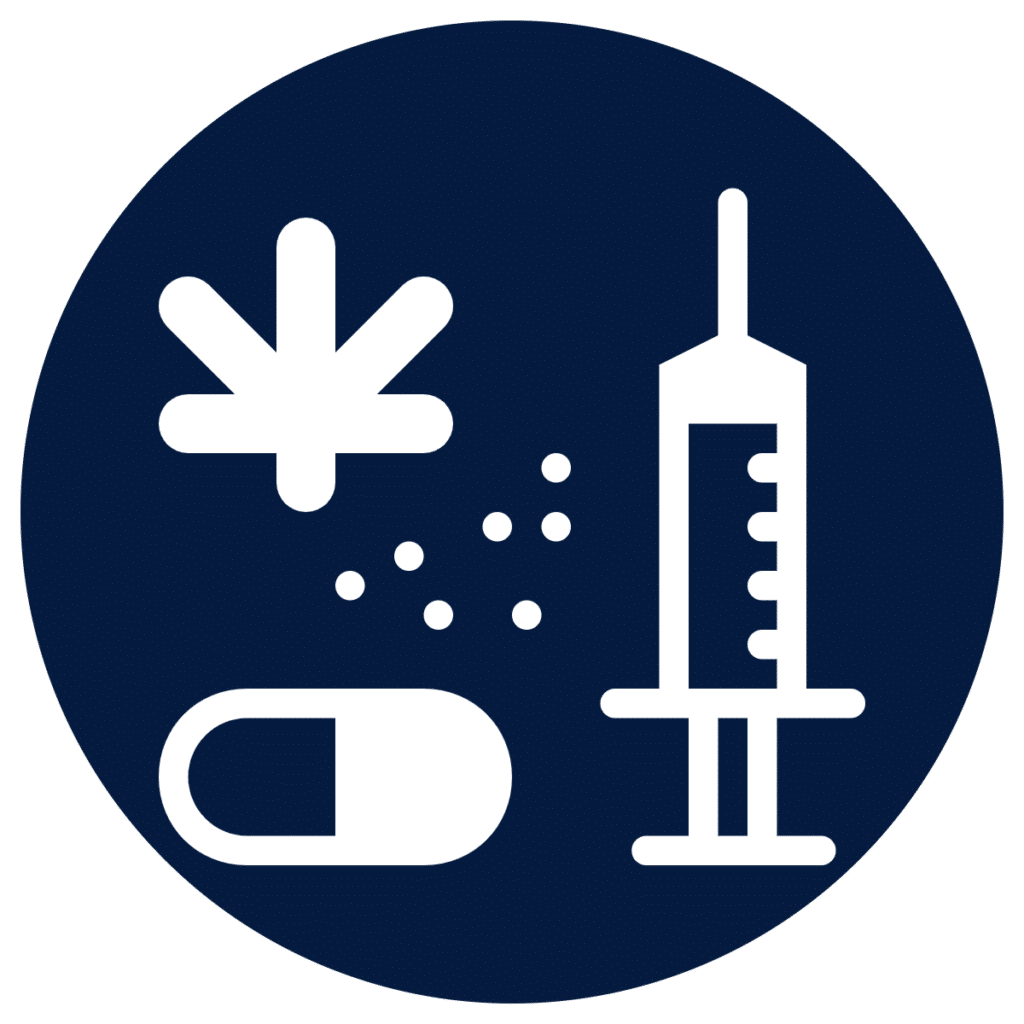Federal drug trafficking charges differ from those at the California state level. In order to properly defend yourself against these charges, you need a federal drug trafficking defense attorney.
David Silldorf has experience with federal drug trafficking crimes and can effectively represent you in federal court. Federal crimes often receive harsher sentences than state crimes, and many drug trafficking offenses carry lengthy prison sentences, including minimum mandatory punishments (most commonly a 10-year-minimum-mandatory sentence).
Let David Silldorf be your advocate. Many of his federal drug trafficking cases have resulted in the government agreeing to dismiss his clients’ charges. Contact us today.
Drug trafficking, also called drug distribution, is the criminal act of unlawfully manufacturing, selling, transporting, or importing illegal drugs or controlled substances (including prescription drugs). Drug trafficking charges are similar to drug possession charges. In the case of drug trafficking, a person is found to be in possession of an illegal substance while knowingly or intentionally selling, transporting, or importing the drugs.
If a person is arrested for drug possession and it is suspected that they intend to sell or deliver the drugs for commercial purposes, they will be charged with a felony drug trafficking offense. A drug trafficking charge can also be applied if a person is arrested while in possession of drugs and materials or tools used to sell or transport drugs (commonly referred to as drug paraphernalia). These can include:
There are both state and federal level laws that govern controlled substances. There are some cases where a defendant is in violation of both federal and state law.
If a case occurs within the boundaries of a singular state, then state laws often apply to that case. Federal charges come into play when activities happen on federal lands, cross over state lines, international boundaries (e.g., at the border between Mexico and the U.S.), or include trafficking large quantities of controlled substances. Each state has its own set of laws, so there is the possibility that anyone arrested for a drug offense can be charged with a federal crime.
A defendant can also be charged with a federal crime if they have a lengthy criminal history. If an offender is manufacturing, has the intent to distribute, or is trafficking a large quantity of drugs, in addition to having a criminal history, they could face federal charges.
Being arrested by a federal officer is another way to be charged with a federal crime. This can occur when federal law enforcement collaborates with local police forces to conduct a sting operation, or if an offender is arrested in a national park for possessing drugs.
Federal and state prosecutors can also work together on the prosecution of drug offenses, usually because the penalties for federal drug charges are more severe. A federal court can “adopt” a state case, resulting in a new one to be filed in the federal courts.
If a person is charged at the federal level, the crime is considered more serious, and there are federal statutes that will impose mandatory minimum prison sentences. These sentences are typically much longer than those ordered at the state level. Additionally, all federal sentences are served at approximately 85% with good time credit.
Federal charges also differ from those of the state when it comes to plea deals. When a federal defendant signs a plea agreement, the federal prosecutor will try to limit his or her appellate rights. There is also no parole available in the federal system. An offender does have the option within federal laws for home confinement or probation, but it is very rare.
When you’re charged with a federal drug crime, depending on the facts of the case, you could also be hit with other charges. If you’re charged with drug trafficking, you could also be charged with:
There are other possible crimes that one could face, depending on the facts of your case, and the prosecutor handling it who is making the charging decisions. The addition of any one of these crimes stacked on to a traditional “border bust” or other drug trafficking offense will result in significantly more prison exposure at sentencing.
All defendants convicted of drug trafficking in federal court who are sentenced to imprisonment are sentenced under United States federal sentencing guidelines. The length of these prison sentences varies depending on the type and quantity of the drug or drugs involved in the offense.
The Controlled Substance Act (CSA) separates drugs into five schedules based on their potential for abuse, medicinal properties, and other safety concerns. Schedule I drugs have the highest potential for abuse, so naturally, they carry the steepest penalties.
The amount of the drug being trafficked also weighs on the sentencing guidelines as well as other factors including:
There are additional penalties that a defendant may face for a federal drug trafficking offense, including forfeiture of all assets related to the drug trafficking operation. This can include bank accounts, properties, or vehicles.
For defendants that are not U.S. citizens, a drug-trafficking conviction will invariably result in removal or deportation from the U.S after the defendant’s sentence has been served.
In order to properly defend a federal drug charge, you need an experienced attorney that approaches your case with a multi-faceted approach and strategy. In order to mount an effective defense, there are several potential issues we will investigate (this is a non-exhaustive list, to be sure):
You shouldn’t lose hope if you’ve been charged with a federal drug trafficking crime. A highly skilled defense attorney will work with you, and fight for you, producing the best possible outcome.
Federal drug trafficking cases can result in an acquittal at trial, dismissal of charges (before or during trial), reduction of charges (also known as an alternative disposition), or the lowest possible sentence if a guilty verdict or plea is reached.
David Silldorf Law is experienced in working with all variety of drug-trafficking charges, including the possession, manufacturing, transportation, importation, possession with intent to distribute, and conspiracy to distribute:
If you’ve been charged with a federal drug charge, you should contact our office immediately.
Our office always works hard to have bail set in our clients’ cases. It is, of course, easier to meet in our office to prepare for your matter than it is in the pre-trial detention facilities. Many of the federal defendants that are held in pre-trial custody are housed far away from the federal courthouse downtown.
There are only two federal jails in downtown San Diego. The balance of federal pre-trial detainees is held in Otay Mesa, El Centro (in Imperial Valley), San Luis, Arizona, Santa Ana, Orange County, and even as far away as Victorville or San Bernardino.
Needless to say, it’s much easier for us to defend your matter when a bond is posted. But rest assured, no matter where our clients are, we will fight with them side-by-side, every step of the way.
Federal drug trafficking is one of the most serious types of crimes that carries harsh penalties, including minimum-mandatory exposure (up to life in prison, in some cases). David Silldorf Law is ready to represent you in your case, fighting for justice on your behalf.
If you’ve been arrested or are being investigated for a drug trafficking crime, you should not delay. Contact our law office today for a free consultation.
David Silldorf has been designated by the Federal U.S. District Court for the Southern District of California as an experienced criminal practitioner qualified to handle appointments arising under the Criminal Justice Act.
The firm’s proximity to the international border has a strong influence on David’s caseload. He regularly represents individuals charged with drug trafficking and alien smuggling offenses and drug-related federal conspiracy cases, and other offenses involving firearms.

United States v. an Individual
[19-CR-02264-AJB]
Importing 18.84 kilograms (41.53 pounds) of methamphetamine from Mexico into the U.S.
DISMISSED

United States v. an individual
[possession of methamphetamine]
Client was arrested by Bureau of Land Management (BLM) officers for possession of methamphetamine.
NO CHARGES FILED

United States v. an individual
[19-MJ-03140-MSB]
Possession with intent to distribute a controlled substance (over 5 kilograms of cocaine) while onboard a vessel on the high seas.
DISMISSED